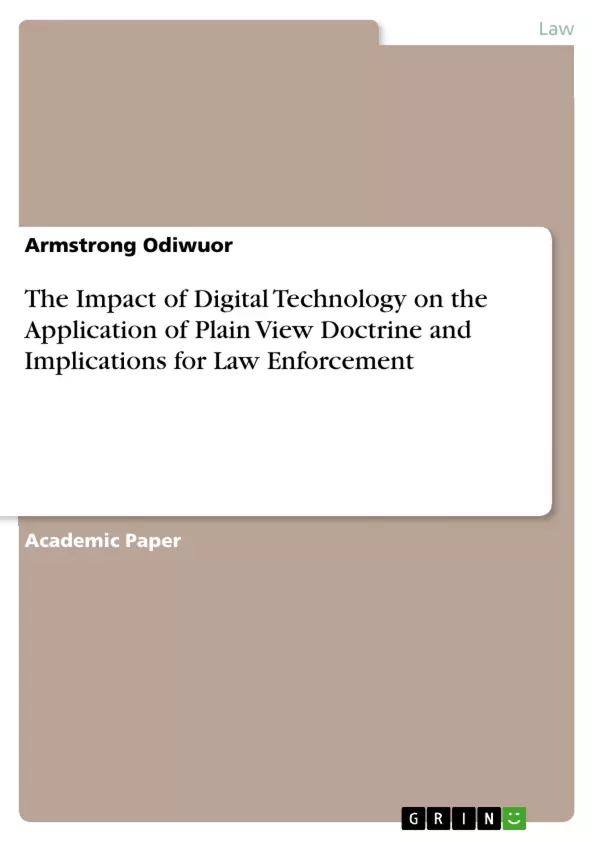The integration of digital technology into vehicles has revolutionized law enforcement practices, particularly in evidence collection and surveillance. This paper examines the impact of digital technologies such as in-car cameras, GPS, and telematics on the application of the plain view doctrine and its implications for law enforcement. By analyzing scholarly literature and legal precedents, the paper explores how digital technologies have enhanced evidence collection and surveillance capabilities while also raising concerns about privacy rights and the admissibility of digital evidence in court.
Additionally, the paper discusses the historical context and legal framework of the plain view doctrine, highlighting its evolution and application in the digital age. Ultimately, this study underscores the need for a nuanced approach to the application of the plain view doctrine in the context of digital technology, balancing law enforcement objectives with individual privacy rights and constitutional protections.
Inhaltsverzeichnis (Table of Contents)
- I. Digital Technologies in Vehicles
- A. Integration of Digital Technologies in Law Enforcement
- B. Implications for evidence gathering and surveillance
Zielsetzung und Themenschwerpunkte (Objectives and Key Themes)
This text examines the impact of digital technology on law enforcement practices, specifically focusing on the integration of such technology in vehicles and its implications for evidence gathering and surveillance.
- The impact of digital technology on law enforcement practices
- The role of in-car cameras, dashcams, GPS, telematics, and data recorders
- The implications for evidence collection and surveillance
- The challenges of digital evidence, including volatility and privacy concerns
- The balance between the use of digital technology and the protection of individual rights
Zusammenfassung der Kapitel (Chapter Summaries)
- I. Digital Technologies in Vehicles
- A. Integration of Digital Technologies in Law Enforcement: This section explores the various digital technologies used in vehicles, such as in-car cameras, dashcams, GPS, and telematics. It examines their applications in law enforcement, including evidence collection, surveillance, and improved operational efficiency. However, the section also highlights the potential for privacy violations due to the collection of personal data.
- B. Implications for evidence gathering and surveillance: This section discusses the significant impact of digital technologies on evidence gathering and surveillance. It emphasizes the advantages of objective, digital evidence, such as improved accuracy and reduced reliance on subjective witness accounts. However, it also explores the challenges related to the volatile nature of digital evidence and the potential for privacy intrusions during evidence collection.
Schlüsselwörter (Keywords)
Key terms and concepts explored in this text include digital technology, law enforcement, vehicle technology, in-car cameras, dashcams, Global Positioning System (GPS), telematics, data recorders, evidence gathering, surveillance, privacy, digital evidence, and constitutional rights.
- Quote paper
- Armstrong Odiwuor (Author), 2022, The Impact of Digital Technology on the Application of Plain View Doctrine and Implications for Law Enforcement, Munich, GRIN Verlag, https://www.hausarbeiten.de/document/1453287


